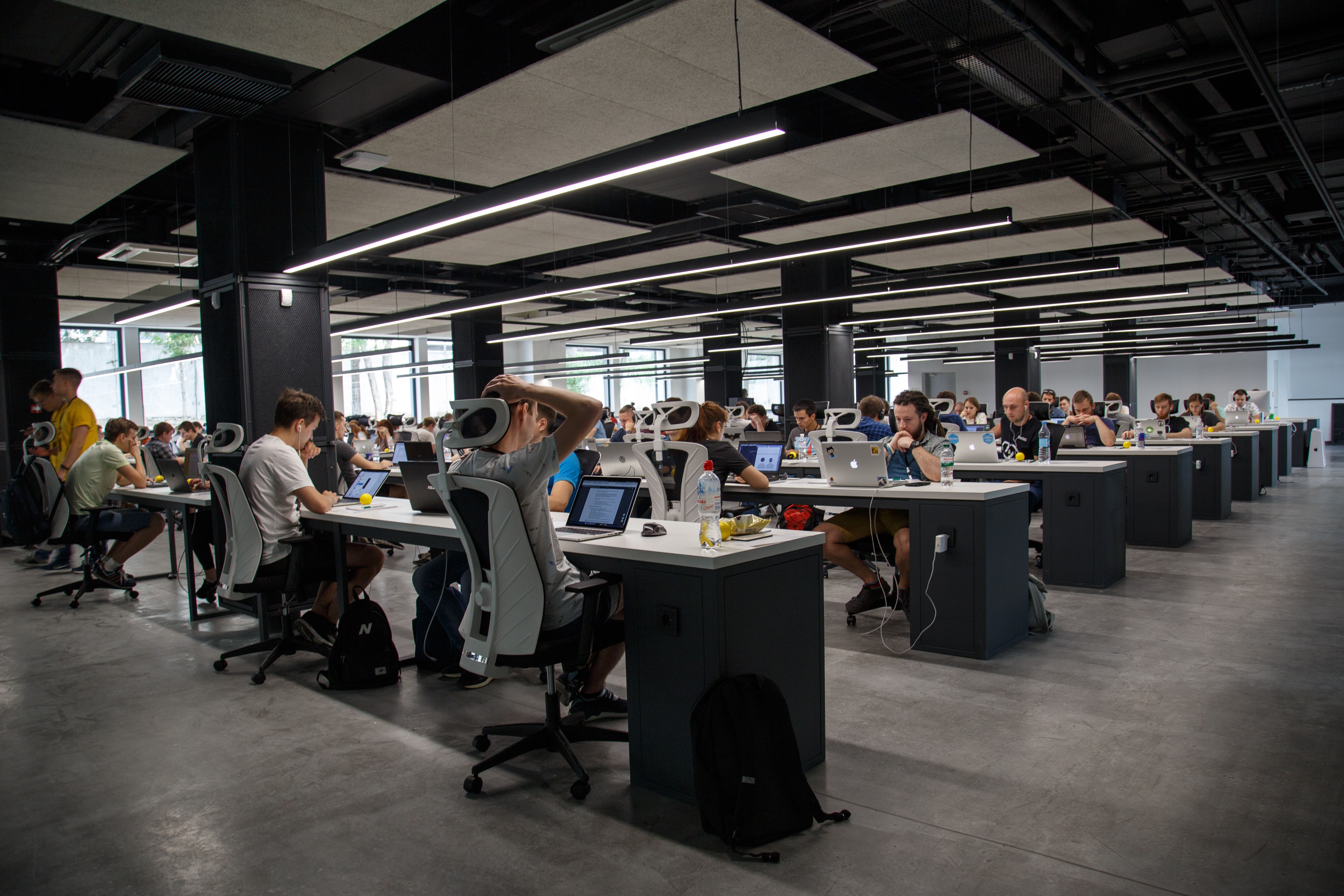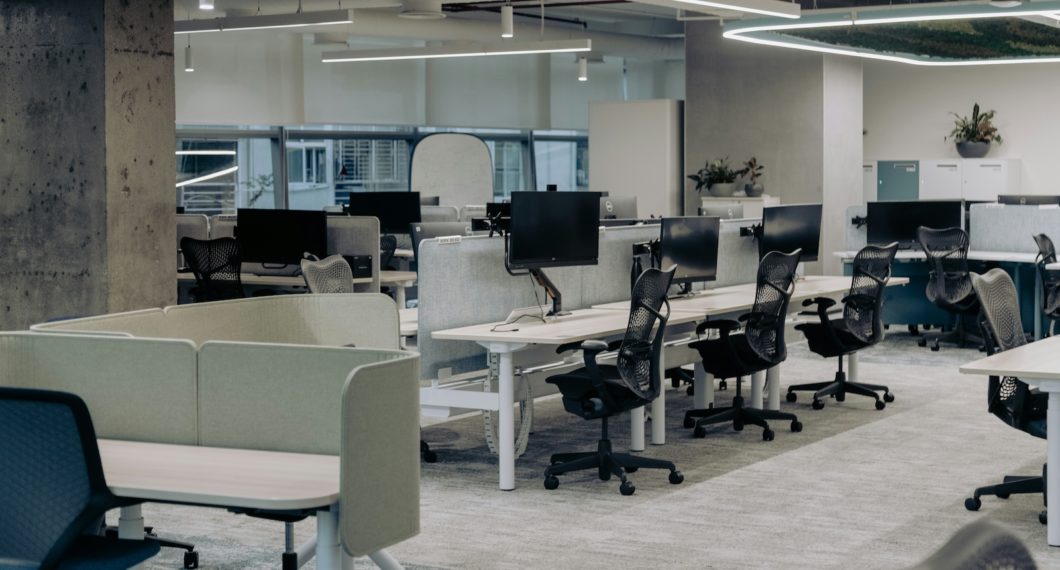Deciding whether to renew your office lease or relocate is tough. We discuss key factors like costs, layout, and location to guide your decision.
By Making Moves London
June 20, 2024
Deciding whether to renew your office lease or try moving to a new location can be a tough decision. Having helped many businesses find new office spaces, we know first-hand that moving can be a lot of work – from searching for the right space to negotiating leases and managing the office fit out.
So, while moving offices can be a great way for businesses to grow, or maximise their efficiency, there can be factors that mean it’s not the right decision at that time. Sometimes, it might be a case of refurbishing your current space to make sure it works for you, rather than relocating altogether.
So, in the words of a certain punk rock band, Should you stay or should you go now? Na na na na. Keep reading to find out!
Before you get all excited imagining your new office space, it’s worth checking the terms of your current lease to see if you are even able to leave in the first place. Many long-term commercial leases will have a break clause, meaning either the tenant or the landlord can end the lease early, without facing a penalty. So even if your tenancy is not yet finished, you may still be able to move.
It’s also important to consider whether you can afford to move financially – because although moving offices can help save money in the long run, it normally requires an initial cost. For example, the cost of dilapidations, surveyor/legal fees, and the cost of fitting out a new office space can all add up for a business. On the flip side, if your current landlord is raising your rent, you may not be able to afford to stay.

So, while deciding whether to stay or leave your current office is a big decision – let’s break it up into smaller, more manageable parts. Here are a few questions that we ask the businesses we work with, to help them decide what’s best for them:
Is your existing office space fit for purpose?
Office spaces aren’t a one size fits all – depending on the industry you work in, the size of your business, and the ways in which your staff like to work, you’ll need different things from an office space. If you’re finding that your staff are too crammed in, are working ineffectively, or find it easier to work remotely, your existing space is likely not fit for purpose.
How important is location to you?
Location can play a big part in attracting staff as well as new clients. Having an office space that is easy to commute to, and has plenty of local amenities on offer, will help impress staff and clients alike. It’s also worth considering the business community in a certain area, for example, are there plenty of opportunities to network and collaborate with others, or are you inserting yourselves within a competitive space?
Like it or not, the location of your office space can say a lot about your business – with many companies choosing to base themselves in more prestigious, often highly priced postcodes, to align with their client base.
Is your office lease a good deal?
Check out our market rent guide to see if you’re paying above the average, or speak to one of our experienced relocation experts to see what areas may offer your business a better deal. While some office buildings are more expensive than others, they also may offer benefits which increase the value of their offering – it’s all about considering what is important to you and your business.
Some landlords find that the end of a tenancy is a great excuse to increase the rent, regardless of whether the current rent was reasonably priced or not – however this is also a great time to negotiate on your part.
Would a ‘reset’ make sense?
Perhaps it’s just time for a change, a refresh, a fresh start. A new office space can be a blank canvas for your business, allowing you to reevaluate the ways in which your business works and create an office space that maximises efficiency. A new office space can also allow you to rebrand how the business looks and feels to your clients, and to redefine your company culture.
Is your office fit for the future?
Things change – as we’ve seen in recent years – so having an office space that can flexibly adjust to these changes will help keep you agile as a business. If you have plans to grow, for example, you will need to factor in more space for additional desks and meeting rooms.
How has your office usage changed post-COVID?
The pandemic changed the ways in which many businesses operate, and some of these changes – such as the rise of remote working – seem to be here to stay. With more people wanting to work from home, it may be that you don’t need as big an office space as you once did.
Alternatively, for businesses wanting to encourage their staff to return back to the office or to introduce structured hybrid working policies, having areas that staff can socialise, such as breakout spaces, can be a good incentive to bring people in more regularly.
Do you have the budget to move offices?
As we’ve briefly mentioned, moving office spaces can come with initial costs – that could impact your all important bottom line as a business. Consider how this move could fit in with your future planning and your yearly budgets. To get an idea of how much an office move may cost, get in touch with one of our trusty experts.
A key factor in deciding to stay or go will tend to be the actual floorspace that your business requires. Luckily for you, we have a whole blog on calculating how much office space you really need – so for more in depth advice, give that a read.
In short, how much office space comes down to several factors, including the size of your team, the industry your business is in, the layout of the office space, and of course the ways in which your team likes to work. You also must account for the accessibility of the office, space for facilities and room for future growth within your calculations.

As we’ve discussed, moving offices can be a lot of work – from the initial search, to the negotiations and finally the design and fit out, it’s not something that just happens overnight. Depending on the size of your office, and your desired location, it could take up to 18 months to fully plan your move.
This comes down to the type of office space that you’re looking for, and how fast you need it. As a rough guide, a serviced office space can take around 1-3 months – given that they are pretty much ready to go once you’ve been given the key. Similarly, a managed office space can take 2-4 months, and a short term lease will take around 3-6 months.
A conventional long-term lease, however, tends to take between 6-12 months of planning – so it’s important to plan these things well in advance.
So, now that we’ve discussed how to calculate how much office space you need, and how long planning can take, let’s consider the pros and cons of staying…
The pros:
One of the biggest benefits of staying put, is that your staff and clients are (hopefully) already settled where you are. Staff are often quite reluctant to change – especially in a way that would impact their day-to-day roles.
Staying in your current office is certainly much easier logistically, meaning you don’t have to worry about uprooting your staff or transferring over your technology safely.
Another benefit of staying in the same office, is that you can put the cost that would be spent on moving (ie. dilapidations, legal fees, etc.) back into the business in another – perhaps more beneficial – way.
Also just because you’re staying in the same space, doesn’t mean you can’t make any changes. Rethinking your office layout could be a great way of making more of the space that you already have
The cons:
Whilst moving offices could be quite costly initially, it could help save your business a heap of money in the long run – whether through a cheaper lease, or lower energy bills from operating a more energy efficient building.
Also, staying in your current office space could place restrictions on how your business can grow or adapt to differing business conditions. For example, not having the space to hire more people could limit future growth, whereas not being able to downsize could mean you are wasting a lot of unnecessary space.
And of course, it would only be fair to also look at the pros and cons of leaving your existing office space…
The pros:
A new office space is essentially a blank canvas, giving you a great opportunity to finetune the structure and ways of working within your business to best maximise efficiency. It’s also a great way to design the space to communicate your brand to visitors.
Searching for a new office space is the ultimate freedom – with offices of all shapes, sizes and leases on the market, you could find a space that better suits the needs and wants of your business.
The cons:
Exiting an office space comes with costs of its own – such as dilapidations – meaning the initial cost could be greater than that of staying.
Also, depending on where your new office space is, you may risk losing some staff along the way – if for example, the commute becomes too long, or they do not like the new ways of working. This could then incur additional costs of having to recruit new staff.

As with any business decision, it often comes back to the bottom line – how much is moving, or staying, likely to cost your business?
While staying means you won’t incur additional moving fees – you may be missing out on savings associated with a cheaper lease, lesser square footage and better energy efficiency. Be mindful to weigh up these costs both in the immediate/short term, and long-term – to fully understand the impact moving or staying could have on your business.
It’s useful to have a budget in mind for your move, or refurb, to see what you can afford to put aside on the project, and how achievable it is based on this amount. Also remember, costs can also include the cost of time, energy and resources, as well as financial costs.
Let’s assess a few examples, and see what would be best to do in each scenario:
Scenario 1: Your business is growing at a good pace, and you’re not sure your current office space can cope with the additional demand.
It’s a natural progression for businesses to grow over time, and you need an office space that is agile enough to allow for this. Depending on the rate of your expansion, you may want to look for a new office space that fits the needs of your office now, but also in the future. While refurbing your existing layout may help squeeze in a few more desks here and there, it is unlikely to allow for a continually growing team.
Scenario 2: You’re considering moving because you’re looking to save money in your business.
Downsizing to a smaller office, or relocating to a less costly location could help save your business money on rent. Additionally, moving to a more energy efficient building is likely to reduce your energy bills. Alternatively, refurbing your current office in a way that maximises efficiency, could be enough to shake things up with your business without the moving fees or legal fees that come with moving.
Scenario 3: Unstable market conditions have left your business worse for wear, having lost key clients you have had to let several staff members go.
If your revenue has gone down, and you can no longer afford your current rent, it’s likely you may have to start looking for other options. That being said, if the market you’re operating in is unstable, you won’t want to be making any big decisions until things calm down again. You don’t want to tie yourself into a lease for a smaller space, only to need to expand again within the coming months.
As you can probably tell by now, there’s a lot to consider when deciding to stay in your current office, or move to a new space.
To summarise, here’s our most important points:
By all means see what else is out there, but remember, the grass isn’t always greener.
We know first hand how difficult the decision of staying or moving office spaces can be, but hopefully now, you feel more confident in making this decision.
If you’re still unsure on what’s best for your business, and want tailored guidance on whether you should relocate or refurb, our expert agents are here to help you through the process from start to finish – whatever you decide. So, get in touch today.
